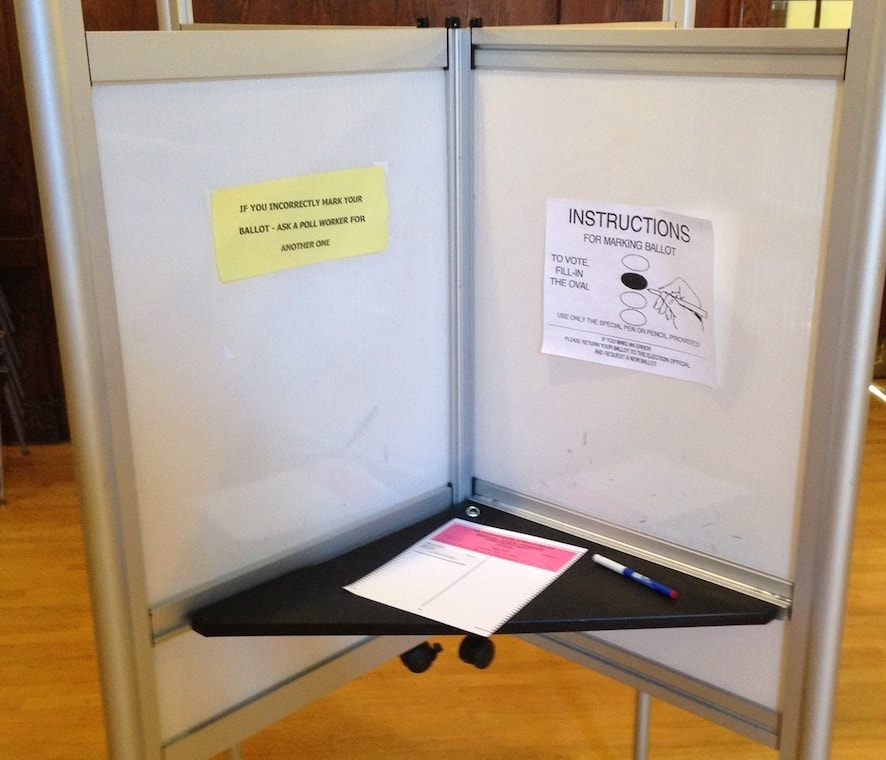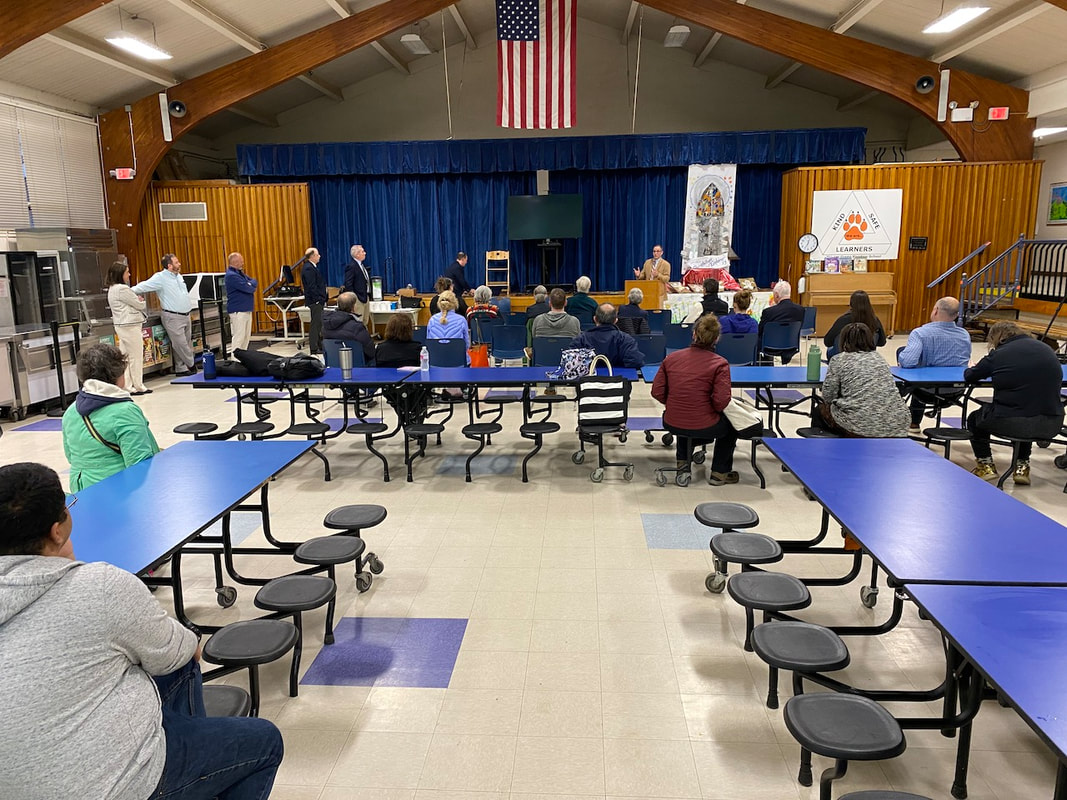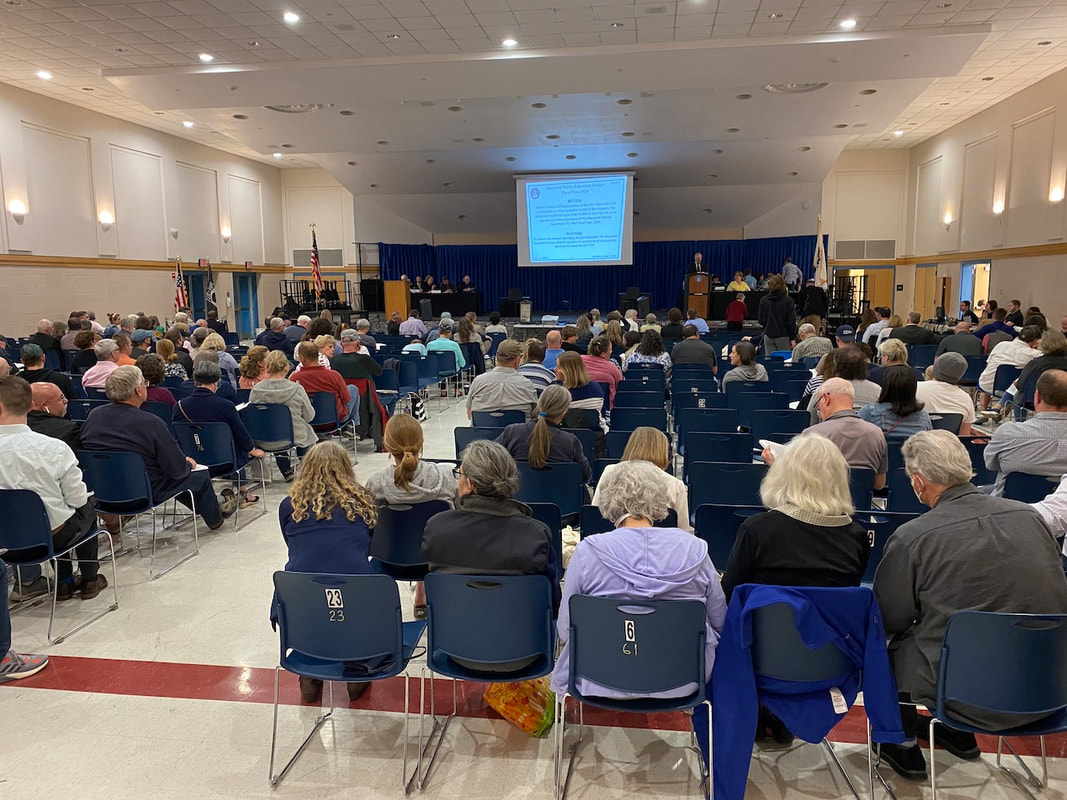|
by Glenn C. Koenig, webmaster at Town Wide Mall Within the next two months, the citizens of Maynard will face a significant decision: Shall we vote to replace our existing elementary school building with a completely new one, borrow the necessary funds (known as a bond issue), and pay off the balance with increased property taxes over the next 30 years? The building is projected to cost $83 million with approximately $29 million to be reimbursed by the state (funded by state tax revenue) and the remaining $54 million funded by taxpayers here in Maynard. The property tax increase is projected to be anywhere from about $500 to over $1000 per year, per property, based on property value. This PDF file from the school department's web site gives the specifics:
Here in Maynard, a committee (the Green Meadow Building Committee) was set up in March 2021 to analyze the condition of the current building and then weigh the options. As this was just one year into the pandemic, there were new challenges to overcome for the committee to do their work and for the public to follow their progress. A year or so later, the local newspaper ceased publication, which made communication between the committee and the public that much more difficult. Ultimately, the committee decided that the current building was not suitable for renovation and must be abandoned and replaced. One major factor in this decision is the availability of funding from the state, as administered by the Massachusetts School Building Authority (the MSBA). The MSBA is authorized to select specific school building projects and help offset the cost to individual cities and towns. However, this offer from the MSBA comes with significant conditions that the town must meet in order to qualify for the funding. Typically, the MSBA provides funding only if a new building is to be built, or in rare circumstances, an existing building will be expanded by undergoing significant renovations. The committee had to amass significant amounts of information in order to conform to the guidelines and requirements of the MSBA. They had to prepare and submit multiple documents with many hundreds of pages of details to apply for the funding. Copies of these documents, meeting minutes, and other information is available on the school department's web site: https://www.maynard.k12.ma.us/o/green-meadow-school/page/gm-building-project-information Over this past summer (2023), the committee has held a number of public meetings and tours of the existing school in order to convince voters to go ahead with the project and answer their questions. Comment Often, newspapers run editorials, prior to elections, to endorse specific candidates or votes on ballot questions. I am choosing not to do that here because I’m a self-appointed local journalist; I don’t have an editorial board as major newspapers do. Also, I realize that, in starting my news feed here, I’ve gained some credibility here in town, which naturally has given me some influence. I take the responsibility that comes with that influence very seriously; I want to be as open, honest, and fair as I can with my opinions.
I've done some research into past school building projects and participated in online discussions regarding other current projects, such as the Nashoba Regional High School building project (which serves Bolton, Stow, and Lancaster). I have spent many hours over the past few months thinking about this issue and its implications, in depth. Here are a few issues that I've identified: 1. Rising Costs - If the cost of buildings like this keep rising faster than inflation, where does this end? Looking back, in 2010, Newton built Newton North High School for just under $200 million, making it one of the most expensive school buildings in the country. Recently Arlington built a new Arlington High School for close to $300 million, again one of the most expensive so far. In my opinion, this can't end well. Eventually, as school budgets and buildings take a greater and greater percentage of local city and town budgets, we will reach a crisis point where projects will be voted down to avoid starving other municipal departments of revenue needed to function at even a bare bones level. Those school departments will be stuck with the existing, worn out buildings. If the deterioration is bad enough (mold, lack of air conditioning as temperatures rise, etc.), then long term school dismissals will have to occur. Although this result may seem far off at the moment, major economic factors could cause the situation to deteriorate much more rapidly than expected. 2. Maintenance and Long Term Planning - So this leads to the next question: How did we get to this situation, where we're being told that our only option is to spend the money on a new building? Certainly, a major share of the responsibility for this dilemma rests with state government. The state has created such a vast web of regulations and policies that often local school officials have few choices left. In this case, the MSBA gives priority to new buildings, with very little for the care and maintenance of existing ones. Here in Maynard, if mistakes were made with regard to building maintenance (or lack thereof) in the past, what plans do we have to do better in the future? From what I understand, building maintenance in general has been critically underfunded in our town, for years. I don't think there is any one person or group of people necessarily responsible for this. Rather, I see an inherent limitation in how local government works, again, largely as required by state laws. In my experience, many local governments are big on short term decisions (as annual budgets have hard deadlines each spring) and weak on long term planning. Long term planning is difficult and usually doesn't yield the immediate results that voters often hope for. So it tends to be put off. However, eventually the price will have to be paid, one way or another. Typically, maintenance is less costly than letting things run down until a replacement is necessary. The environmental impact of constructing a new building is vastly greater than proper maintenance and renovation of existing ones. 3. Impact on Diversity - The more we try to promote the town as a great place for families with school aged children, and raise taxes devoted to the schools to support that effort, the more we start to shift the demographics of Maynard in general. The elderly, low to moderate income folks, artists, and single people will eventually be pushed out. Yet these populations are a significant part of what makes Maynard the diverse and exciting place it is. Retired and single people are more likely to volunteer for community groups and projects that enhance life in the town, for just one example. I know people who avoided moving into other towns nearby, where there are "excellent schools" (and much higher taxes to pay for them), because those towns ended up with a mono-culture of families with parents working high earning jobs, with little time for community life. 4. The Suppression of Dissent - In my experience with this and similar campaigns in other towns, the extremely aggressive promotion by the proponents has left a number of residents feeling intimidated and afraid to speak up about their real concerns. The proponents respond to questions with carefully selected facts and arguments, but the ultimate conclusion of some residents is that "they don't really want to listen to us." The proponents have the upper hand because they have spent our tax money (legally) to research and build a substantial base of information with which to argue in favor of the project. The rest of us have little resources to "fight facts with facts" in order to bring about a balanced discussion on the pros and cons of going forward, in light of the true impact on the town overall. In my opinion, this is bad for democracy. Indeed, the complexity of many issues facing towns has continued to grow over the years, making it harder and harder for the average citizen to properly inform themselves before voting or making decisions. An aggressive one-sided campaign just makes it worse.
Conclusion: I am not here to urge you to vote one way or the other on this project. I raise these questions because I want there to be a responsible and open debate. I know there are many more considerations, but I have only a limited time to write this and you, the reader, likely have a limited time to read a lot more more than what I've written here. After all, we all need time to look away from our screens, get up, and stretch, right? I wish I could publish an actual newspaper, but that's just not in the cards for now.
The worst thing that can happen is that citizens stay home because they feel overwhelmed by the whole process. If possible, I suggest that you talk with your friends and neighbors, in person "over the back fence" or while walking the dog, if possible. There are ways to reach an understanding about things in quiet in-person discussions that no social media can match.
2 Comments
Terry Morse
9/23/2023 12:15:00 pm
Thank you for your Herculean efforts to keep us (those lucky enough to live in Maynard) better informed, and inspired to take time away from screens and actually Think about the issues facing our town.
Reply
Tim
9/25/2023 05:27:43 pm
Maynard resident and property owner, with no children.
Reply
Leave a Reply. |
AuthorWrite something about yourself. No need to be fancy, just an overview. Archives
June 2024
Categories |
||||||||||||



 RSS Feed
RSS Feed